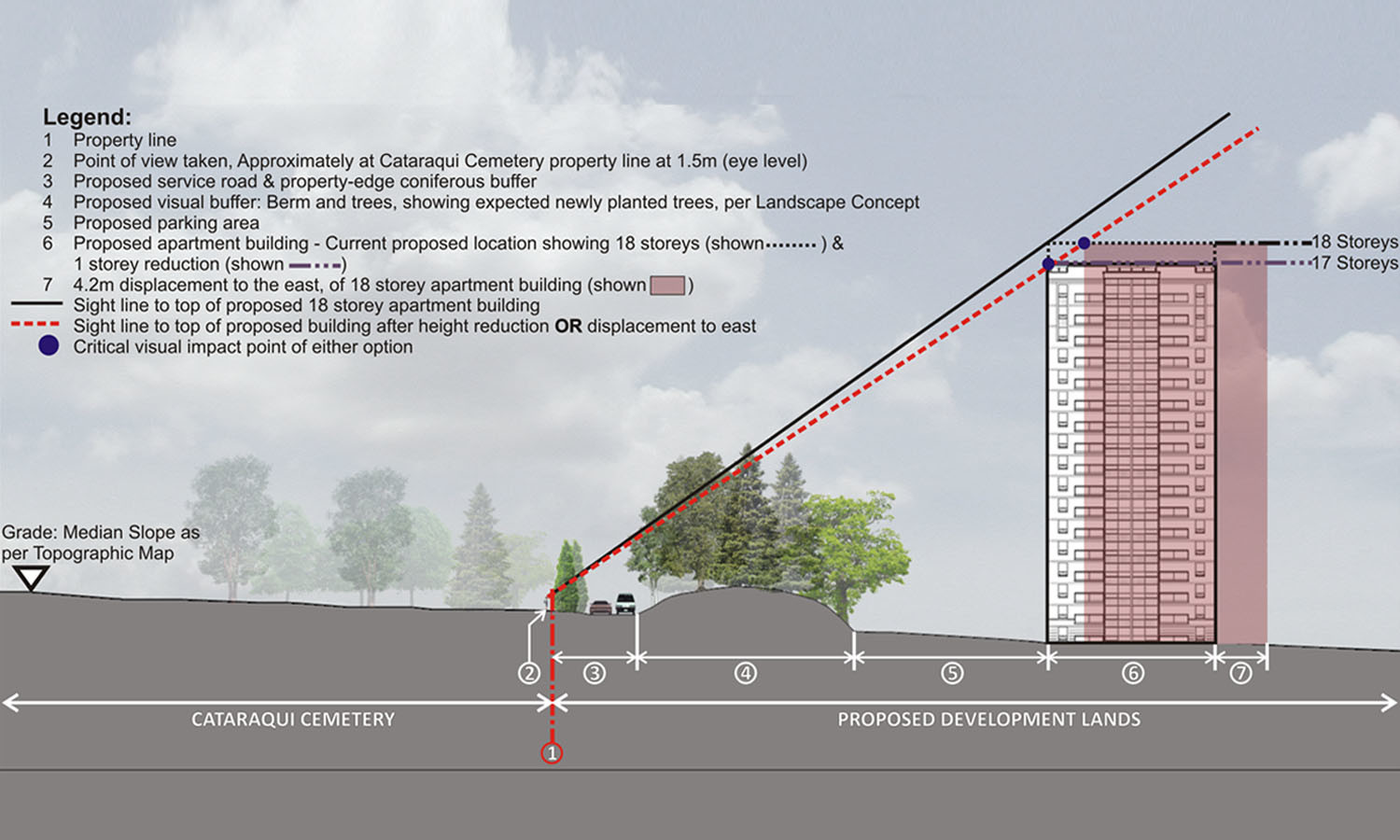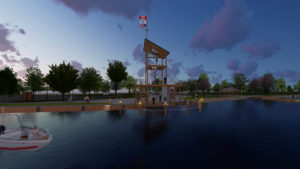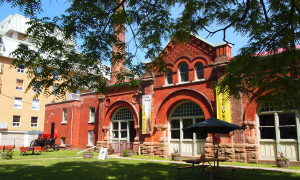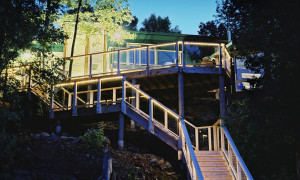The lands immediately adjacent to the Cataraqui Cemetery, the final resting place of Sir John A MacDonald, Canada’s first Prime Minister, were subject to a development proposal featuring a range of apartment block buildings. TRACE architectures was retained by the proponent to explore the potential impact of the proposal with respect to heritage value within the subject site and the Cataraqui Cemetery through the Cultural Heritage Impact Statement (CHIS) process.
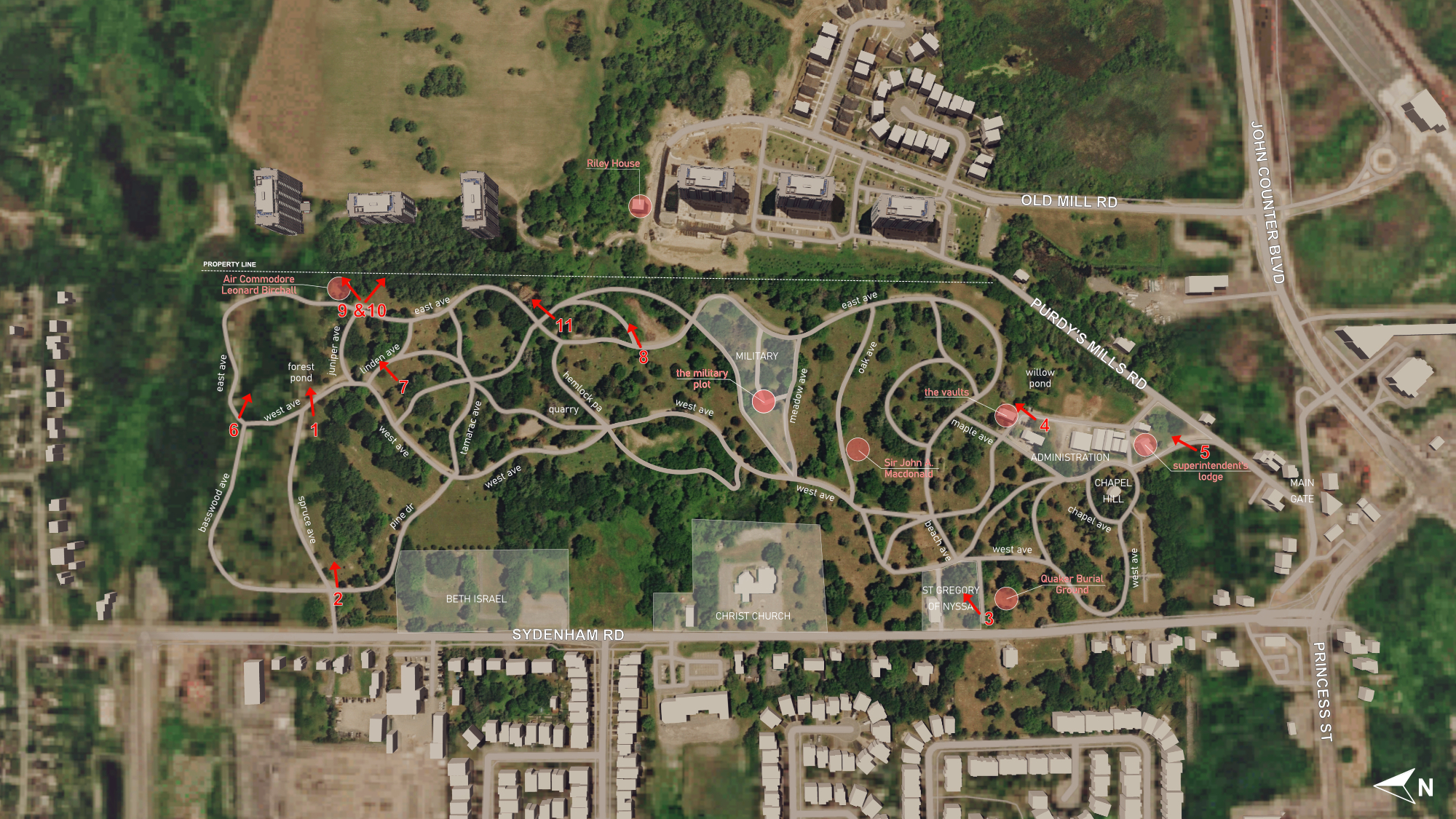
Reflecting the unique nature of the development context for this site, TRACE architectures lead and participated in a series of multi-disciplinary reviews, considering input from heritage, architectural, planning, and environmental disciplines, which together informed the basis of the design concept for the proposed development, completed by others. Other review initiatives included historic research, precedent studies (Canada, USA, and Europe), detailed site review, review of proposed development, and development of alternate concept development studies to mitigate the impact on adjacent heritage assets.
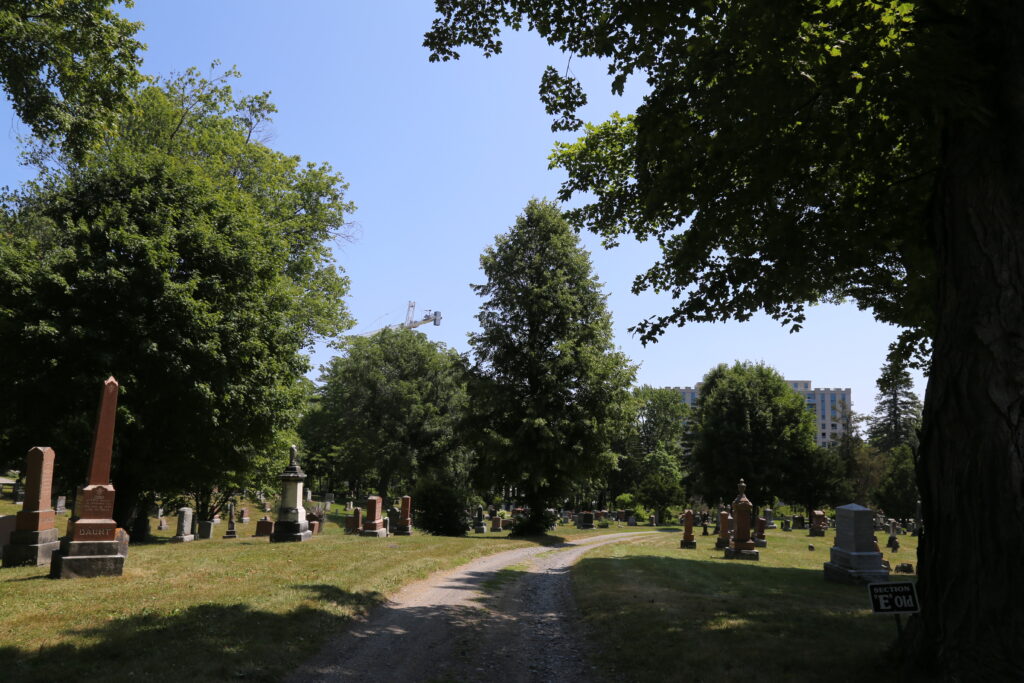
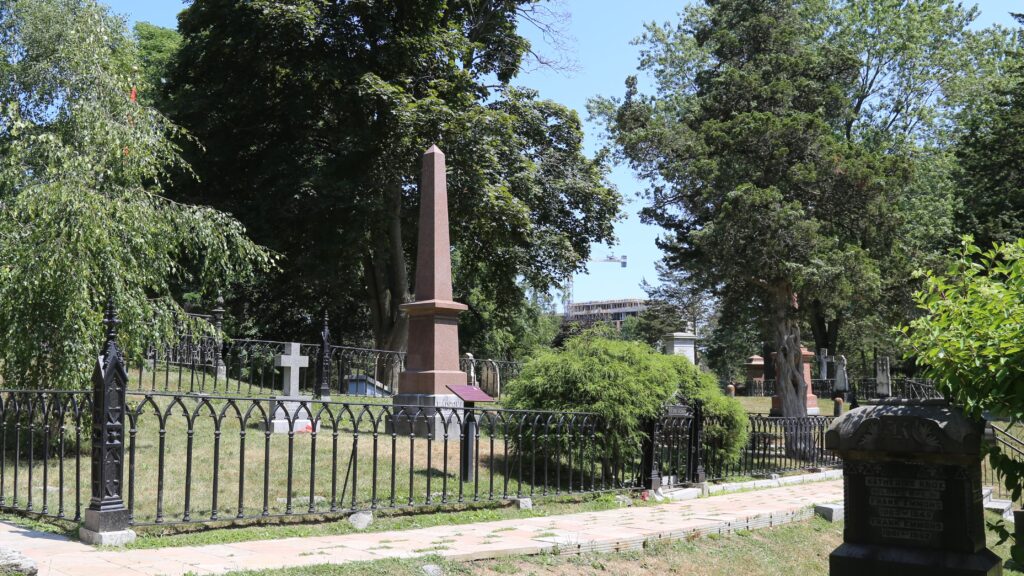
It was important for all parties involved including the City of Kingston, the Proponent, and other affected parties to fully understand the visual impact of the proposed development, especially outward from the grave site of Sir John A. MacDonald, a National Historic Site. In order to address this, we created a large-site 3D model to explore site concepts for infill, adaptive use, and other potential interventions relative to the grave site. We successfully demonstrated the visual impact while assisting the Proponent to minimize their proposal’s impact on adjacent heritage assets.
Measuring Impact from Key Views

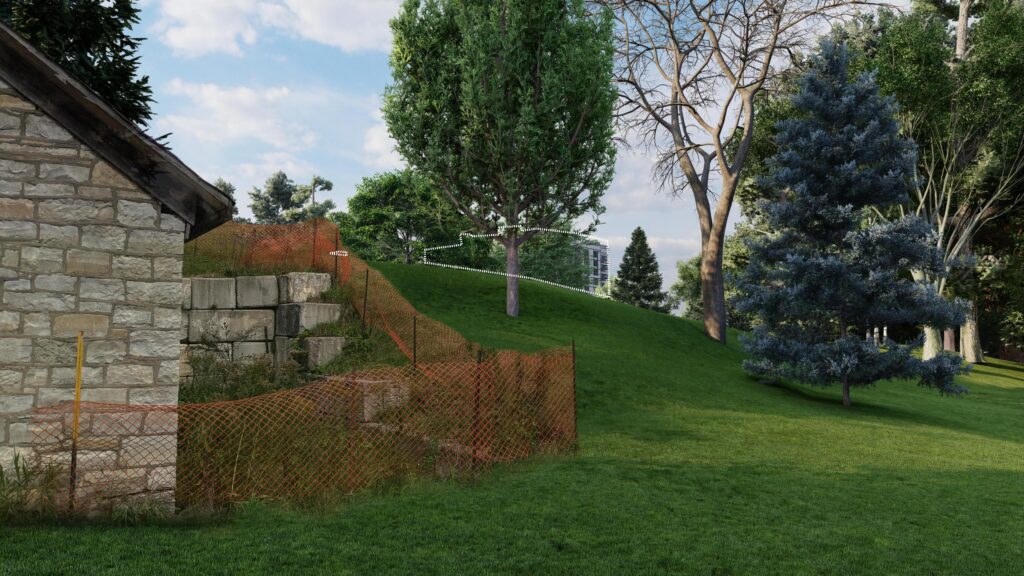
An accurate 3D model allowed the generation of accurately rendered views to measure the impact of the proposed development from multiple locations around the Cataraqui Cemetery.

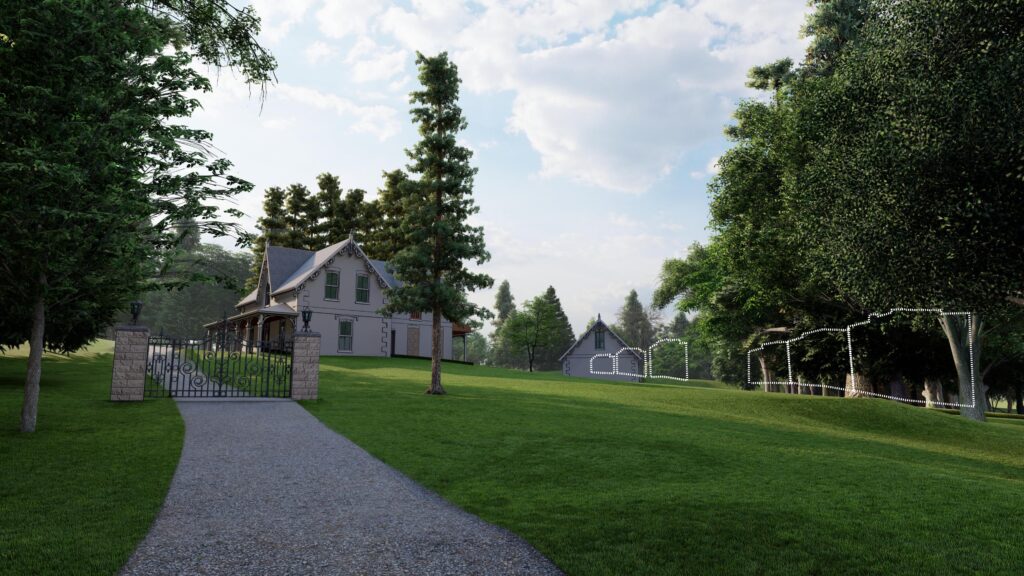
Many of the views were taken from key structures with heritage value. View above shown from the south gate, at the original groundskeeper’s house.
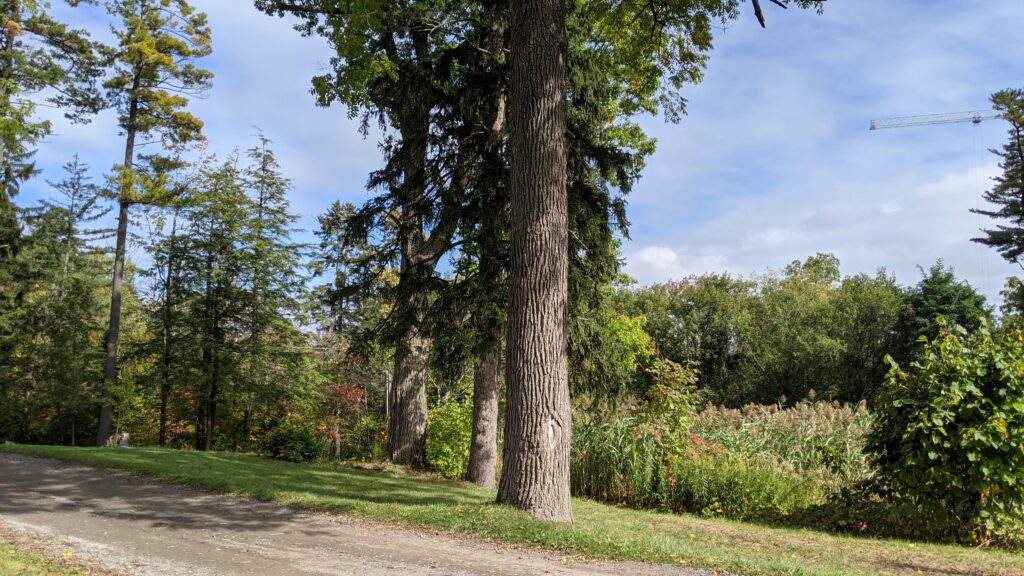
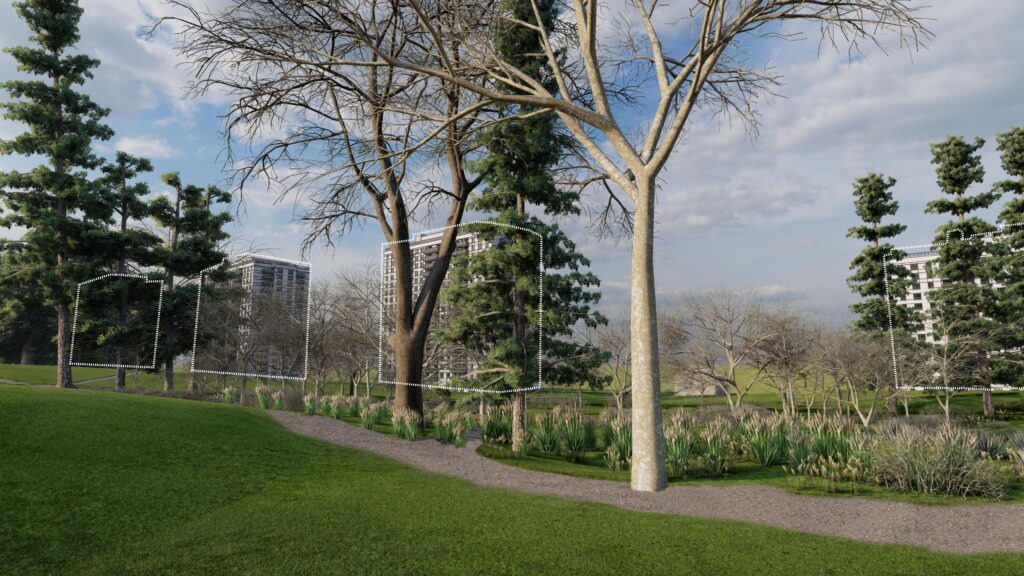
The impact review included considering the seasons and impact of the lack of leaves in the fall and winter that would otherwise make the development visible.
